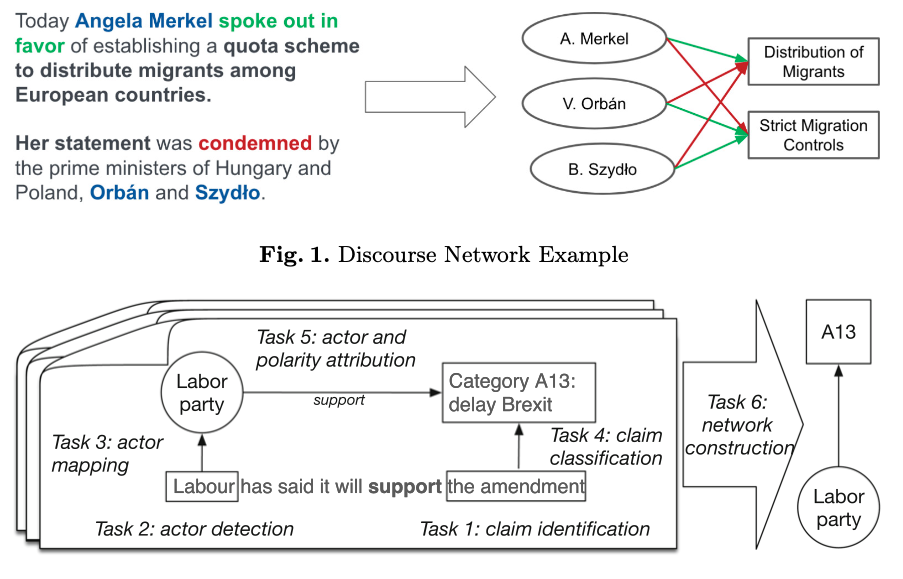The opinions of political actors (e.g., politicians, parties, organizations) expressed through claims are the core elements of political debates and decision-making. Political actors communicate through different channels: parties publish manifestos for major elections, while individual actors make statements on a day-to-day basis as reflected in the media. These two channels offer different approaches for analysis: Manifestos, on the one hand, are useful to characterize the parties’ positions at a global ideological level over time. In contrast, individual statements can be collected to analyze debates in particular policy domains on a fine-grained level, in terms of individual actors and claims. In this article, we summarize a series of studies we have carried out.
We apply NLP-driven (semi-)automatic analyses on these two channels and compare their potentials and challenges. The fine-grained analysis yields rich insights into the communication but comes at the cost of three challenges: (a) a substantial hunger for manual annotation, introducing practical hurdles for analysis both within and across languages; (b) difficulties in claim classification arising from the uneven frequency distribution over the theory-based annotation schemas; (c) the need to map actor mentions onto canonical versions. Manifesto-based analysis avoids these challenges to a substantial extent when a more coarse-grained analysis of party positions is sufficient. We highlight the benefits and challenges of both approaches, and conclude by outlining perspectives for addressing the challenges in future research.
- Ceron, Tanise, Ana Barić, André Blessing, Sebastian Haunss, Jonas Kuhn, Gabriella Lapesa, Sebastian Padó, Sean Papay, and Patricia Zauchner. 2024. “Automatic Analysis of Political Debates and Manifestos: Successes and Challenges.” In Proceedings of the 1st International Conference on Recent Advances in Robust Argumentation Machines, 71–84. LNCS. Bielefeld: Springer. https://doi.org/10.1007/978-3-031-63536-6_5.

